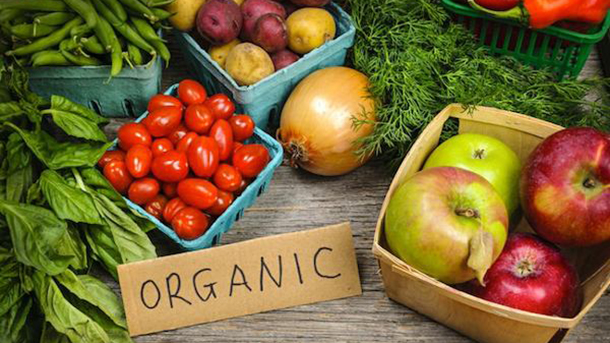
Organic food production has become increasingly popular in recent years as people become more aware of the negative impact of conventional farming practices on human health and the environment. Organic farming relies on natural processes and techniques to produce crops and raise animals without the use of synthetic fertilizers, pesticides, or genetically modified organisms (GMOs). In this blog, we will discuss the benefits of organic food production, the challenges it faces, and the future of sustainable agriculture.
Benefits of Organic Food Production
Organic food production has numerous benefits, both for the environment and for human health. Here are some of the most significant benefits:
- Better Soil Health: Organic farming practices, such as crop rotation, cover cropping, and composting, help to maintain and improve soil health. Organic soils have higher organic matter content, better water-holding capacity, and greater nutrient availability than conventional soils. This results in healthier plants and higher quality crops.
- Reduced Environmental Impact: Organic farming practices minimize the use of synthetic fertilizers, pesticides, and herbicides, which can contaminate the soil, water, and air. Organic farming also reduces greenhouse gas emissions, conserves water resources, and preserves biodiversity.
- Safer Food: Organic farming prohibits the use of synthetic pesticides and fertilizers, which have been linked to numerous health problems, including cancer, birth defects, and neurological disorders. Organic food is also free from GMOs, which have been shown to have negative impacts on human health and the environment.
- Better Nutritional Quality: Organic food is often richer in nutrients than conventionally grown food. Organic crops contain higher levels of antioxidants, vitamins, and minerals, which can help to boost immune function and reduce the risk of chronic diseases.
- Supporting Local Economies: Organic farming supports local economies by providing job opportunities, increasing the diversity of crops, and promoting sustainable land use. This also helps to reduce the environmental impact of food transportation and distribution.
Challenges of Organic Food Production
Despite its many benefits, organic food production faces several challenges. Here are some of the most significant challenges:
- Lower Yields: Organic farming practices tend to produce lower yields than conventional farming practices. This is because organic farming relies on natural processes and techniques that take longer to produce results.
- Higher Costs: Organic farming can be more expensive than conventional farming, as it requires more labor and resources to maintain soil health, control pests, and manage weeds. This can result in higher prices for organic food, which may not be affordable for everyone.
- Limited Availability: Organic food is still not widely available in many parts of the world. This is because organic farming is often more difficult and costly than conventional farming, and many farmers lack the knowledge and resources to transition to organic farming practices.
- Food Safety: Although organic farming prohibits the use of synthetic pesticides and fertilizers, it is not a guarantee of food safety. Organic food can still be contaminated with harmful bacteria, viruses, or parasites, which can cause foodborne illnesses.
The Future of Sustainable Agriculture
Despite the challenges facing organic food production, the demand for organic food continues to grow. Consumers are becoming more aware of the benefits of organic food and are willing to pay a premium for it. In addition, governments and organizations are recognizing the importance of sustainable agriculture and are investing in programs to support organic farming practices.
The future of sustainable agriculture lies in a combination of organic farming practices and technology. Advances in agricultural technology, such as precision farming and biotechnology, can help to improve the efficiency and productivity of organic farming while minimizing its environmental impact. This can help to address some of the challenges facing organic food production, such as lower yields and higher costs.









